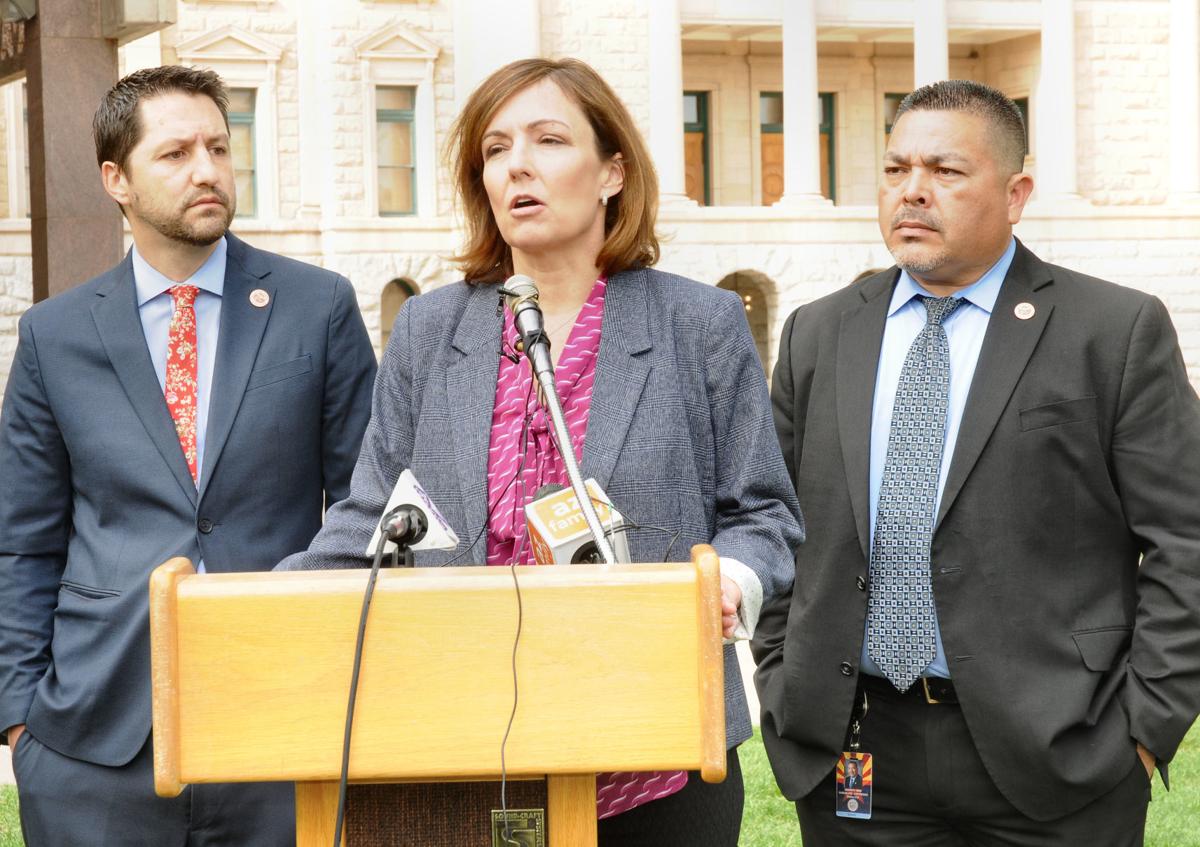PHOENIX — A special committee wants Arizona to revamp sex-abuse laws to make it easier to prosecute some people who violate their position of trust with young victims.
But the Justice for Victims of Child Sex Abuse Task Force stopped short of recommending that those who were victims of child sex abuse get more time to sue their assailants.
In a report issued Friday, the committee concluded that the definition of who is in a “position of trust” is too narrow.
That definition can be important in cases when the victim was 15 through 17 years old. If the alleged assailant was in a position of trust, then prosecutors need not prove that the victim did not consent.
Right now the list ranges from parents, teachers, coaches and clergyman to those who are in a relationship with a parent of the minor.
The proposal would expand that list to any relatives by blood or marriage to the third degree, with the exception of siblings. Also added would be employers and bosses, adults who live in the same house with the minor and any person at least 10 years older than the minor who has a relationship with the minor or the minor’s family.
It also would add all school employees to the list and not just teachers or educators. And youth pastors would join clergy and priests as those in trust.
Gov. Doug Ducey set up the task force to propose recommendations in May, the same day he signed legislation to give those who were sexually assaulted or abused as children more time to sue.
That new law scrapped existing statutes that required victims to sue before their 20th birthday or forfeit their legal rights. Now they will have until age 30.
That is far less than originally sought by Sen. Paul Boyer, R-Phoenix, who was co-chair of the task force. But it was the best deal he could get through the Legislature at that time.
The task force concluded that having a hard-and-fast cutoff at age 30 “is not sufficient.” But the members did not recommend expanding the ability to sue, concluding they did not have enough time or information to pursue the matter and file their report by their Dec. 1 deadline.
But Boyer said that, as far as he’s concerned, the issue is not closed. He said he will try to get colleagues to revisit the issue when the Legislature reconvenes in January.
One of the elements of the legislation approved earlier this year opened up a temporary legal “window” for lawsuits by those whose time to file suit already expired. They will have until the end of 2020 to bring their claims, no matter how many years ago the incidents occurred.
The task force is recommending that courts monitor those cases using what it learns to analyze the evidence about delayed disclosure to make recommendations for what would be an appropriate age for a statute of limitations.
Boyer said that could help convince legislators to revisit the issue and set the age higher than 30.
One recommendation of particular concern to Boyer deals with how teachers communicate with students.
“I don’t believe that any teacher should be on social media with their students,” he said. “I think that there are official means or methods of communicating with their students that doesn’t involve one-on-one direct messaging.”
The task force is recommending that the state Board of Education come up with guidelines on not just social media but also cellphone use between students and teachers.
Another recommendation seeks to expand the power of the state board to review the conduct of uncertified educators in the classroom.
Right now, the report says the board has oversight of only certified teachers with the power to revoke their credentials. But that ignores the fact that there are 6,000 people in classrooms in public and charter schools who are not certified and not subject to having their ability to teach rescinded by the board.
Along the same lines, the task force points out that the investigative unit at the state Department of Education consists of one chief, four investigators and one administrative assistant.
What that means, the report says, is each investigator currently has a caseload of between 120 and 150 cases; the education department says 50 is the “appropriate and manageable amount.”
The report also includes a proposal to place special conditions on those convicted of sex trafficking crimes when they are placed on probation.
That, the task force said, could include curfews, staying away from school grounds unless registered as a student there, not going to a hotel without prior written approval of a probation officer, and successfully completed domestic violence counseling.
Some of what the committee is recommending, like the additional investigators for the Department of Education, will require money.
Ducey press aide Patrick Ptak said the governor is reviewing the recommendations. But he said Ducey is pleased with what he’s seen.





